Table of Contents
Phone screen time is quietly stealing the most valuable part of your child’s life their childhood.
Last month, Riya, a mother of two from Pune, had an emotional breakdown at a parent-teacher meeting. Her 8-year-old son Aarav suddenly dropped in grades, refused to play outdoors, and reported frequent headaches. His teachers said he appeared distracted, anxious, and emotionally withdrawn.
The culprit?
Endless hours of phone screen time.
And Riya isn’t alone.
The Emotional Cost You Never Saw Coming
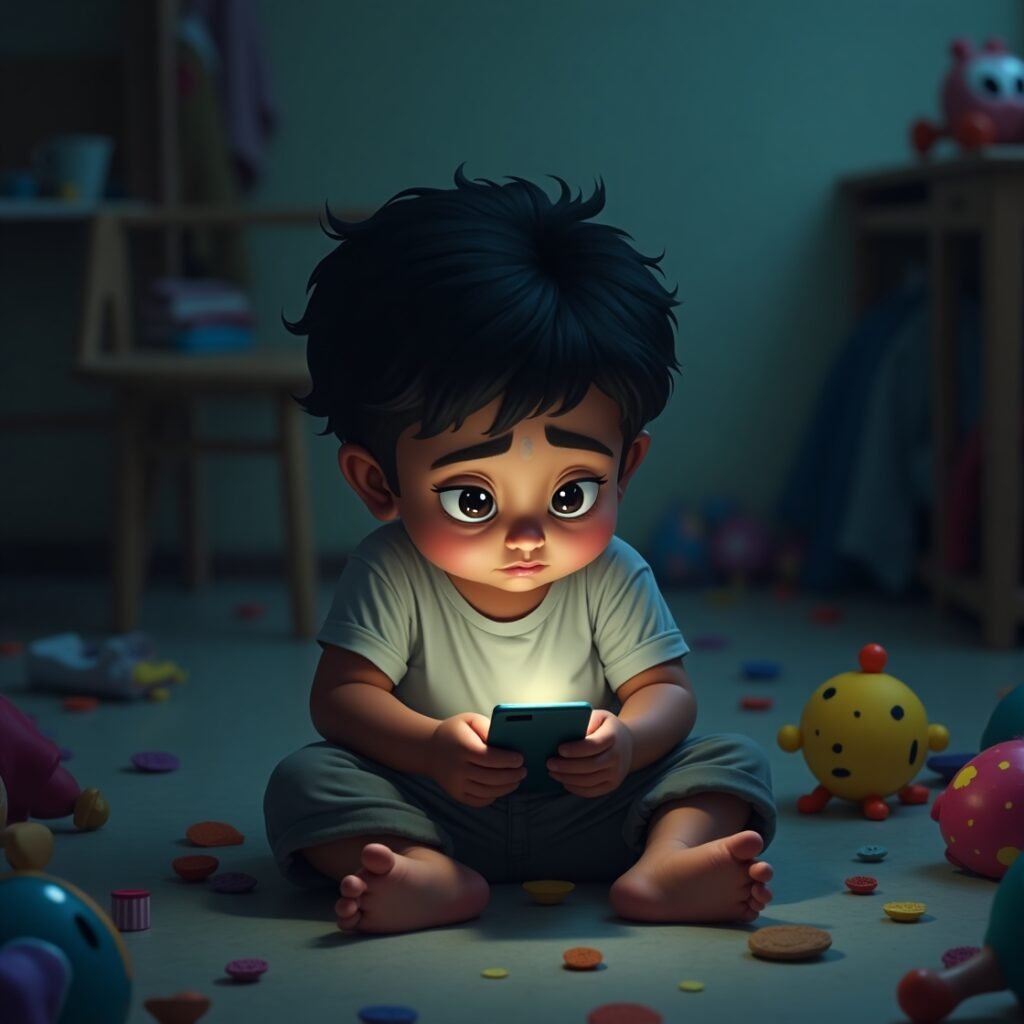
Parents give smartphones to children for one reason — to occupy them. A game on this phone, a video on that phone, possibly some educational material.
But gradually, that “five minutes” becomes hours.
Kids, with their still-developing brains, are not equipped to deal with the rushes of dopamine these screens provide. It’s not about how much time — it’s about what time is being replaced:
- Family bonding
- Outside play and sun exposure
- Real social interaction
- Imaginative and emotional growth
It’s no longer a matter of what they’re doing, but what they’re not getting.
What Counts as Excessive Screen Time?

Experts such as the American Academy of Pediatrics recommend:
- Ages 2–5: 1 hour daily of high-quality screen time
- Ages 6+: Regular limits to make sure screen time doesn’t get in the way of sleep, physical activity, or other healthy habits
But let’s be real — how many children today fall within that threshold?
In India alone, studies indicate kids from 6 to 14 years old now spend on average 3–4 hours per day on phones. That’s more than 1,200 hours per year — or 50 full days.
The Apps Parents Trust – But Should Rethink
Let’s take a close look at some of the popular apps kids spend time on — and what they’re actually doing:
1. YouTube / YouTube Kids
Educational? Occasionally. But addictive by design.
Autoplay, colorful thumbnails, and speedy content hook children. Even “safe” content overstimulates young brains.
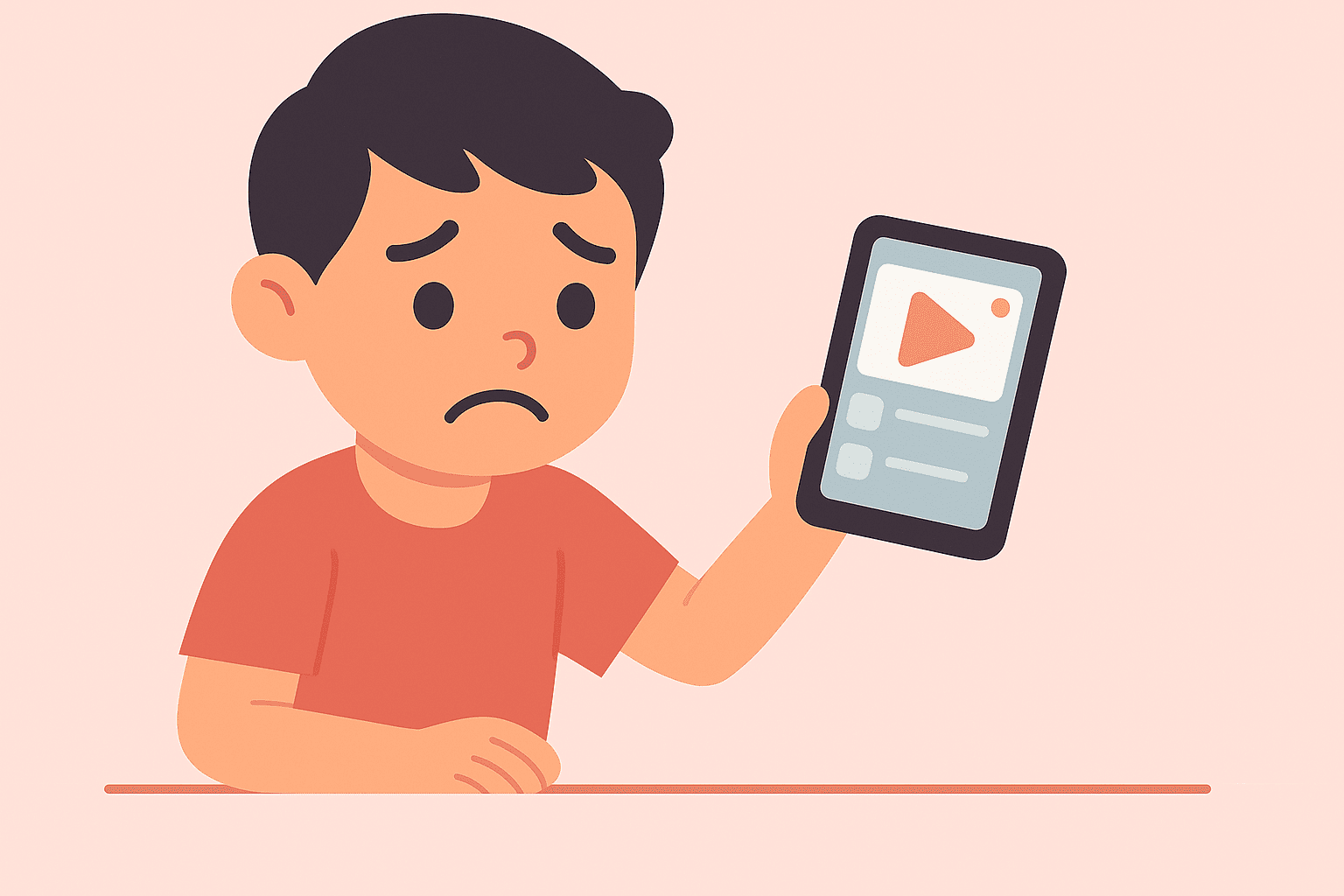
2. Instagram Reels & YouTube Shorts
Dopamine hits in quick succession.
These short videos are designed to decrease attention span, cause instant gratification, and induce comparison anxiety — even among pre-teens.
3. Free Games with Ads
Apps such as Temple Run, Subway Surfers, or mobile puzzles can appear innocuous. But most of them are full of manipulative ads, in-app purchases, and reward systems that trap children playing for hours.
4. OTT Platforms (Netflix, Amazon Prime)
Binge-watching cartoons, fantasy shows, and anime programs tend to fill entire evenings. Sleep takes the backseat. Social time disappears.
One Parent’s Turning Point
Let’s return to Riya.
After facing the reality, Aarav’s mother made a decision that was hard to make. She didn’t prohibit phones, she changed their use.

She found FocusFun, a learning app made not to ensnare kids, but to educate them using engaging and age-appropriate methods.
Aarav, rather than playing arbitrary mobile games, now dedicates 30 minutes per day to:
- “Find the Picture”: Improves memory, eye for detail, and visual IQ
- “Word Missing”: Facilitates vocabulary development with interactive challenges
- “Math Quiz”: Transforms arithmetic into a game show — not a classroom
Riya didn’t remove the screen.
She gave it purpose.
Why FocusFun Succeeds Where Others Don’t
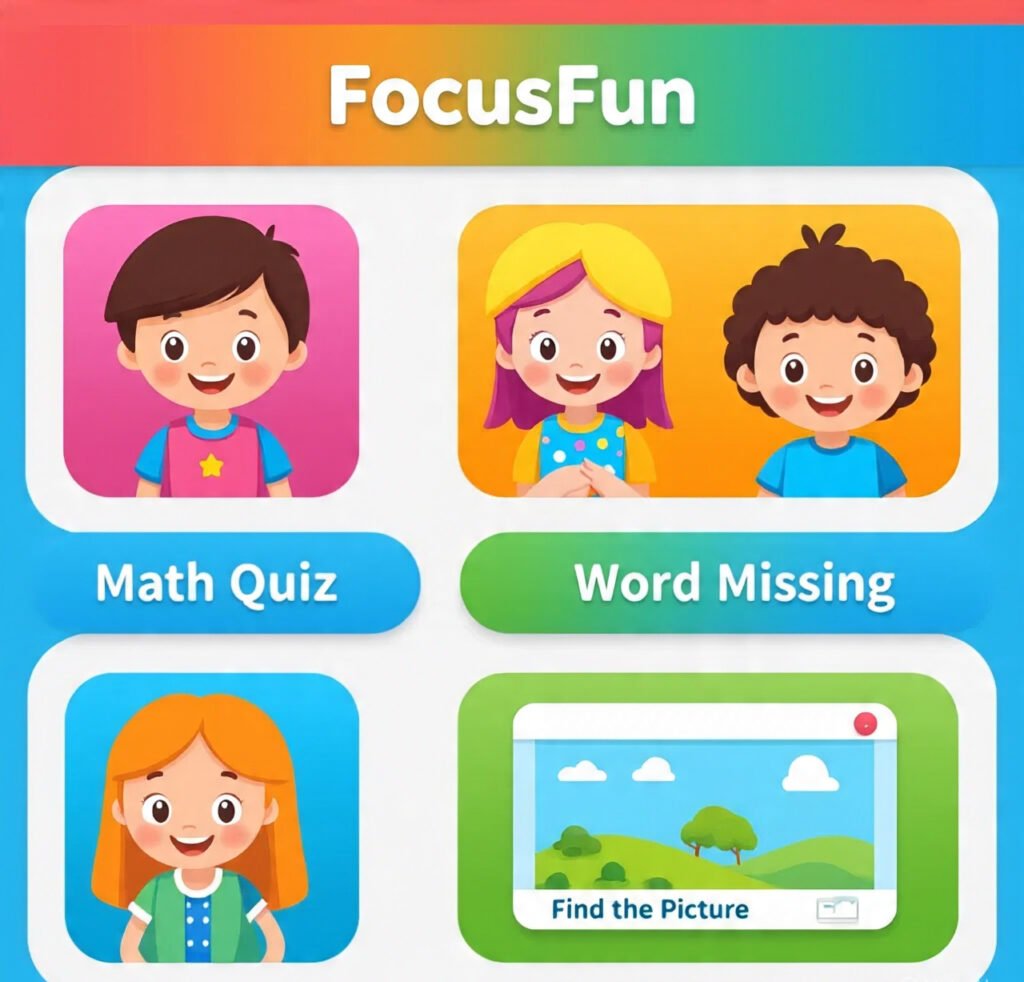
Most apps are designed for entertainment. FocusFun is designed for empowerment.
✦ Screen Time = Smart Time
Each moment your child uses is a moment of skill building — vocabulary, logic, problem-solving, emotional intelligence.
✦ Safe and Curated
No offensive ads. No aggression. Just age-adjusted, curriculum-based enjoyment.
✦ Parent Insights
Monitor progress. Establish boundaries. Develop schedules. All through a loving and empowering parental management system.
Red Flags Every Parent Should Look Out For
You may be asking yourself, “Is my child already affected?”
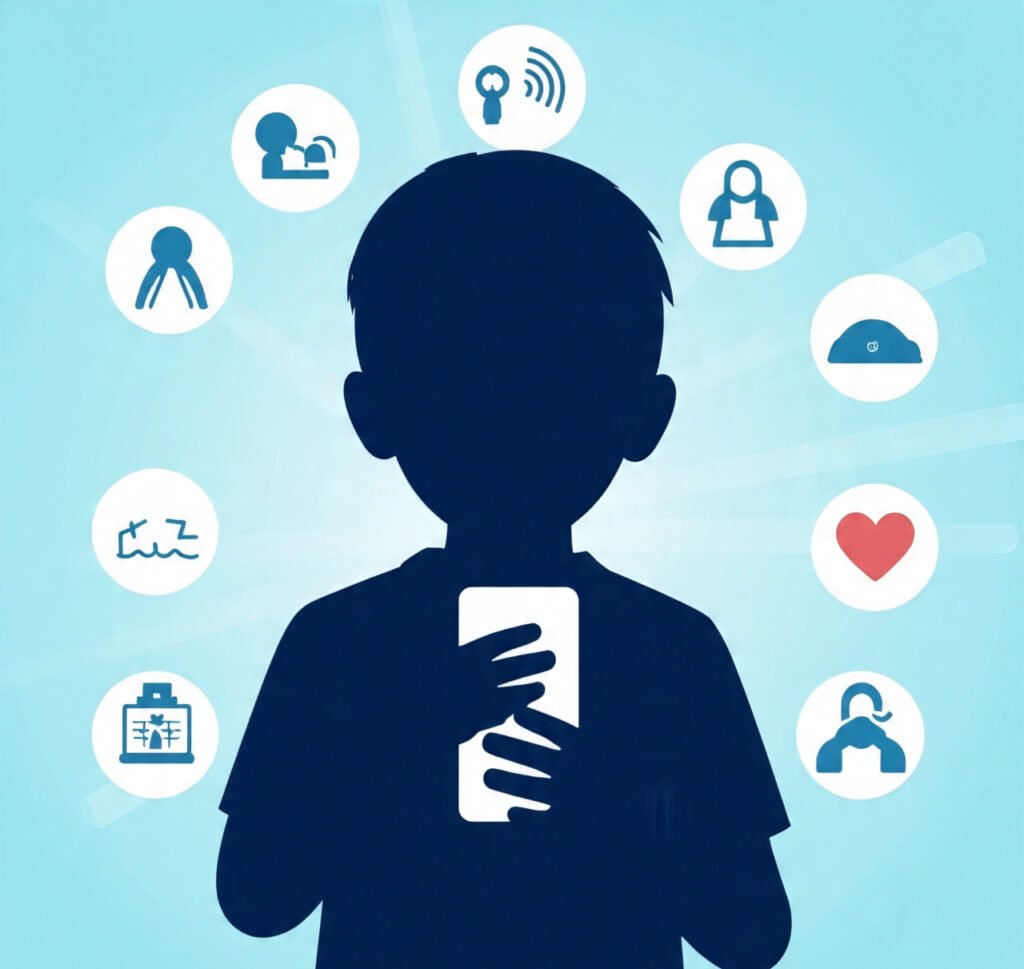
Here are emotional and behavioral indicators that your child’s phone screen time is excessive:
- Difficulty concentrating on conversations or tasks
- Anger or irritability when the phone is removed
- Decreased interest in play, books, or family time
- Reports of persistent headaches or dry eyes
- Heightened sensitivity or worry about emotions
If you see two or more of these, it’s not too late — but it is time.
Smart Parenting = Balanced Screen Habits
Here’s the reality: it won’t work to ban phones forever. They’re here to stay. But balance can be achieved:
✔ Designate technology-free areas such as the dinner table and bedtime
✔ Swap screen idle time for learning apps such as FocusFun
✔ Encourage fun off-screen — puzzles, books, music, outdoor activities
✔ Be a role model: kids mirror your habits
✔ Use parental controls, not punishments
When Screen Time Is Bonding Time
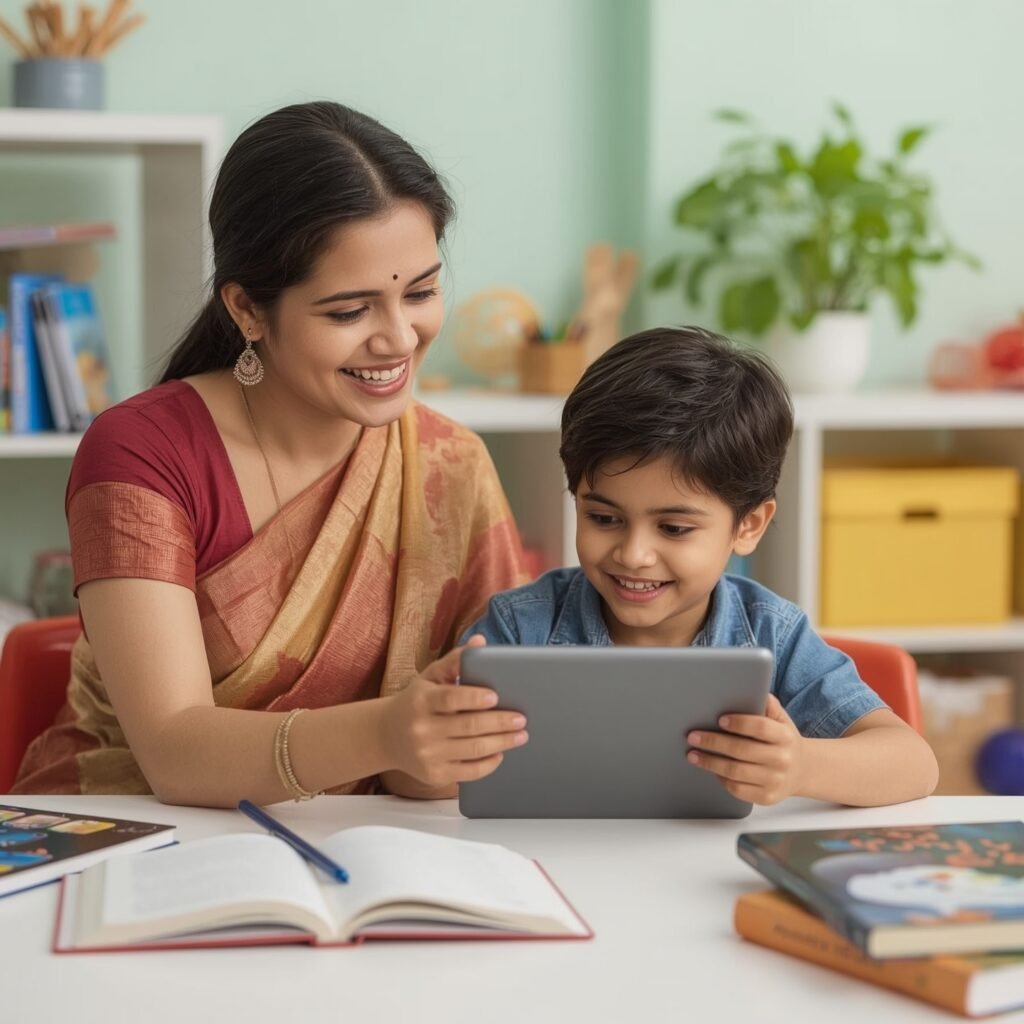
Consider this:
It’s 4 o’clock. Instead of Aarav huddled in a corner watching cartoons, he’s playing a logic puzzle on FocusFun — and he calls you to guide him.
You smile, sit next to him, and figure it out together.
That’s not screen time.
That’s connection time.
That’s smart time.
The Final Truth Parents Can’t Ignore
Excessive phone screen time is a contemporary childhood crisis in plain sight.
But with the right tools, the right attitude, and platforms like FocusFun, we can give kids more than just entertainment. We can restore their imagination, happiness, and focus.
We can cease wondering, “How much screen time is too much?”
And begin wondering, “How can I make screen time meaningful?”
✨ Ready to Transition from Screen Time to Smart Time?
Let your child discover engaging, skill-development activities for age 3–14.
Try FocusFun Today — Where Fun Meets Focus.
No unnecessary scrolling. Just happy learning.
FAQs
1.How much screen time is too much?
Experts suggest no more than 1–2 hours of recreational screen time per day for kids—but many are crossing that line unnoticed
2. How many hours on phone is addiction?
Spending over 3–4 hours daily—especially without purpose—may indicate developing phone dependency.
3. What are the side effects of mobile phones on children?
Excessive screen time can lead to poor sleep, anxiety, reduced attention, and even emotional disconnect.
4. How to tell if your kid has too much screen time?
Look for mood swings, resistance to offline activities, and trouble focusing—common signs parents often miss.
5. Is mobile addiction a serious problem?
Absolutely. It silently disrupts mental, emotional, and academic health—and is often ignored until it’s too late.
